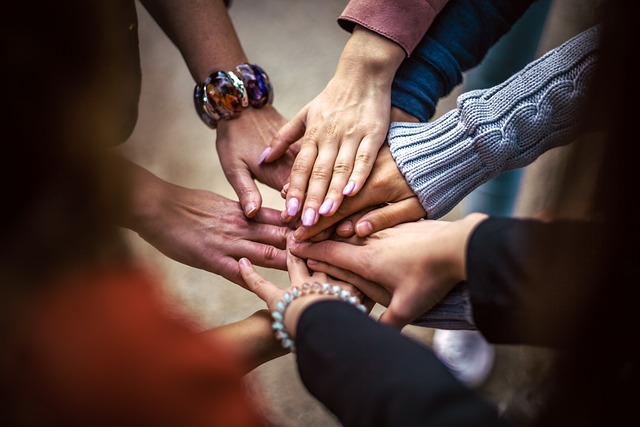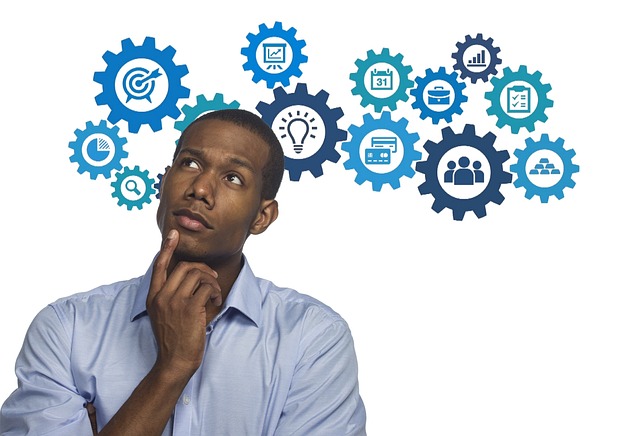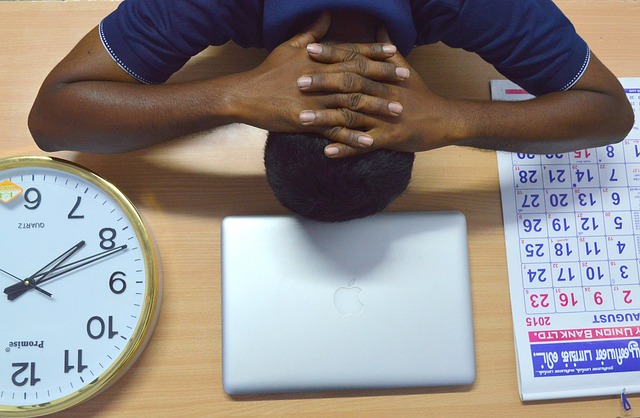Personal development refers to the process of improving oneself through conscious and intentional efforts to acquire new knowledge, skills, and attitudes. The concept of personal development encompasses various areas of life, including physical, emotional, intellectual, social, and spiritual. Engaging in personal development activities can have numerous benefits that can positively impact various areas of your life.
As with many of my posts, there may seem to be some repetition in the different sections because my posts tend to be quite long. However, it’s important to remember that each repeated subsection is for a different section. So, please don’t skip any paragraphs as there may be unique points in those subsections.
Personal Development and Improved Self-Awareness

Self-awareness is the ability to recognize and understand your own thoughts, feelings, and behaviours. It is a crucial skill that can help you make better decisions, improve relationships, and achieve personal growth.
Self-Awareness
- Practice Mindfulness: Mindfulness is the practice of being present and aware of your thoughts, feelings, and surroundings. By practising mindfulness regularly, you can develop greater self-awareness. To practise mindfulness, try to focus on your breath, pay attention to your physical sensations, and observe your thoughts without judgement.
- Keep a Journal: Journaling is a powerful tool that can help you gain insights into your thoughts and emotions. By writing down your thoughts and feelings, you can identify patterns and triggers that affect your mood and behaviour. Set aside time each day to write in a journal and reflect on your experiences.
- Seek Feedback from Others: Feedback from others can be a valuable source of information that can help you gain insights into your strengths and weaknesses. Ask for feedback from people you trust and respect, such as friends, family members, or colleagues. Be open to constructive criticism and use it as an opportunity to learn and grow.
- Take Personality Assessments: Personality assessments, such as the Myers-Briggs Type Indicator or the Big Five Personality Traits, can help you gain a better understanding of your personality traits and tendencies. By knowing your strengths and weaknesses, you can make better decisions and work on areas for improvement.
- Practice Self-Reflection: Self-reflection is the process of examining your thoughts, feelings, and behaviours to gain insights into your inner self. Set aside time each day to reflect on your experiences, ask yourself questions such as “What did I do well today?” and “What could I have done better?” Be honest with yourself and use self-reflection as an opportunity to learn and grow.
- Seek Therapy or Counselling: Therapy or counselling can provide a safe and supportive environment for you to explore your thoughts and feelings. A trained therapist can help you identify and work through issues that may be hindering your self-awareness. Consider seeking therapy or counselling if you are struggling to improve your self-awareness on your own.
Summary
In summary, self-awareness is a critical skill that can help you improve your personal and professional life. By practising mindfulness, keeping a journal, seeking feedback from others, taking personality assessments, practising self-reflection, and seeking therapy or counselling, you can improve your self-awareness and achieve personal growth. Remember that self-awareness is an ongoing process, and it takes time and effort to develop. Be patient and persistent, and you will see the benefits of self-awareness in your life.
Personal Development and Increased Self-Confidence

Self-confidence is the belief in oneself and one’s abilities. It is a crucial trait that can help you succeed in various aspects of life, including personal and professional endeavours. However, self-confidence is not something that comes naturally to everyone, and it can be challenging to develop.
Self-Confidence
- Identify Your Strengths: One of the most effective ways to increase self-confidence is to identify your strengths and acknowledge your accomplishments. Make a list of your strengths, achievements, and past successes. Reflect on how you overcame challenges and the skills you used to achieve your goals. Focusing on your strengths and successes can help you build confidence in your abilities.
- Set Achievable Goals: Setting achievable goals and working towards them can help you gain confidence in yourself. When you set goals, break them down into smaller, manageable tasks. Celebrate your progress along the way and acknowledge your achievements. Each small accomplishment will contribute to your overall confidence and sense of achievement.
- Practice Self-Care: Taking care of yourself can help boost your self-confidence. Prioritise self-care activities, such as exercise, eating healthy foods, getting enough sleep, and practising stress-reducing techniques such as meditation or yoga. When you take care of your physical and emotional needs, you’ll feel better about yourself and your abilities.
- Dress for Success: The way you present yourself can have a significant impact on your self-confidence. Dressing well and taking care of your appearance can help you feel more confident in yourself. Choose clothes that make you feel good, and pay attention to your grooming and hygiene.
- Practise Positive Self-Talk: The way you talk to yourself can affect your self-confidence. Pay attention to your inner dialogue and replace negative self-talk with positive affirmations. For example, if you catch yourself thinking “I can’t do this,” replace it with “I can do this. I have the skills and abilities to succeed.”
- Face Your Fears: One of the most effective ways to increase self-confidence is to face your fears. Identify the things that make you feel uncomfortable or scared and make a plan to tackle them. Start small and gradually work your way up to bigger challenges. As you overcome your fears, you’ll gain confidence in your abilities.
Summary
Increasing self-confidence is a process that requires effort and practice. By identifying your strengths, setting achievable goals, practising self-care, dressing for success, practising positive self-talk, and facing your fears, you can boost your self-confidence and achieve personal growth. Remember that building self-confidence takes time, so be patient with yourself and celebrate your progress along the way.
Personal Development and Communication Skills

Communication is the foundation of all relationships, both personal and professional. The ability to communicate effectively can lead to improved relationships, increased productivity, and greater success in all areas of life.
Communication
- Active Listening: Active listening is an essential part of effective communication. To be an active listener, focus your attention on the person speaking, and listen to what they are saying without interrupting or thinking about your response. Show that you are engaged by nodding, making eye contact, and asking clarifying questions.
- Choose Your Words Carefully: The words you use can significantly impact the effectiveness of your communication. Choose your words carefully and be mindful of your tone of voice. Avoid using slang or jargon that the other person may not understand. Use clear and concise language, and avoid using negative or confrontational language.
- Pay Attention to Body Language: Body language can communicate more than words ever could. Be aware of your own body language, and pay attention to the body language of the person you are communicating with. Make eye contact, stand or sit up straight, and use appropriate facial expressions to convey your message.
- Use Storytelling: Using storytelling is a powerful way to convey your message and connect with your audience. Share relevant stories that help illustrate your point and make your message more relatable. Stories can help capture people’s attention, make your message more memorable, and create a sense of empathy with your audience.
- Practice Empathy: Empathy is the ability to understand and share the feelings of another person. Practising empathy can help you communicate more effectively by understanding the other person’s perspective. Put yourself in the other person’s shoes and try to see the situation from their point of view.
- Practice, Practice, Practice: Effective communication is a skill that requires practice. Look for opportunities to practise your communication skills, such as public speaking or group discussions. Seek feedback from others and use it as an opportunity to improve your communication skills.
Summary
Enhancing your communication skills can have a significant impact on your personal and professional life. By practising active listening, choosing your words carefully, paying attention to body language, using storytelling, practising empathy, and practising regularly, you can improve your communication skills and achieve personal growth. Remember that effective communication is an ongoing process, and it takes time and effort to develop. Be patient and persistent, and you will see the benefits of enhanced communication skills in all areas of your life.
Personal Development and Time Management

Time management and productivity are essential skills that can help you achieve your goals and improve your overall quality of life. Effective time management can help you work smarter, not harder, by maximising your productivity and achieving more in less time.
Time Management and Productivity
- Set Goals: Setting goals is the first step in effective time management. Identify your goals, both short-term and long-term, and break them down into smaller, achievable tasks. Prioritise your tasks based on their importance and urgency, and focus on the most critical tasks first.
- Create a Schedule: Creating a schedule can help you manage your time more effectively. Use a planner or digital calendar to block out time for specific tasks, including breaks and downtime. Stick to your schedule as much as possible, and be flexible when unexpected events arise
- Eliminate Distractions: Distractions can significantly impact your productivity. Identify the distractions that affect you the most, such as social media, email, or notifications, and eliminate them during your scheduled work time. Use tools such as website blockers or phone settings to reduce distractions.
- Use Time-Saving Tools: Time-saving tools can help you work more efficiently. Use productivity apps or software to help you manage your tasks, automate repetitive tasks, and streamline your workflow. Use templates or checklists to save time on routine tasks.
- Prioritise Self-Care: Taking care of yourself is essential for maintaining productivity. Prioritise self-care activities, such as exercise, getting enough sleep, and taking regular breaks. Taking care of your physical and emotional needs can help you stay focused and productive.
- Learn to Say No: Learning to say no can help you manage your time more effectively. Avoid taking on tasks or responsibilities that do not align with your goals or values. Say no to meetings or requests that are not essential or do not add value to your work.
Summary
Improving time management and productivity is a process that requires effort and practice. By setting goals, creating a schedule, eliminating distractions, using time-saving tools, prioritising self-care, and learning to say no, you can improve your productivity and achieve your goals. Remember that effective time management is an ongoing process, and it takes time and effort to develop. Be patient and persistent, and you will see the benefits of improved time management and productivity in all areas of your life.
Personal Development, Creativity and Innovation

Creativity and innovation are two of the most valuable skills in today’s fast-paced world. Whether you’re an entrepreneur, artist, or simply looking to stand out in your industry, cultivating these skills is essential.
Creativity and Innovation
- Embrace Diverse Perspectives: One of the most important ways to foster creativity and innovation is to expose yourself to a wide range of perspectives. Seek out people from different backgrounds, cultures, and industries. Attend events or conferences that are outside your typical field. This can help you see things from a new angle and generate fresh ideas.
- Break Out of Your Comfort Zone: We often get stuck in routines that limit our creativity and innovation. To break out of your comfort zone, try doing something completely new and different. Take up a new hobby or activity. Travel to a new place. You never know where inspiration will strike, and by exposing yourself to new experiences, you can ignite your creative spark.
- Collaborate with Others: Collaborating with others can be an excellent way to generate new ideas and push the boundaries of what’s possible. Working with people who have different skills and expertise can help you see things from a new angle and develop solutions that you might not have thought of otherwise.
- Practice Mindfulness: Mindfulness is the practice of being fully present and aware of your surroundings. By practising mindfulness, you can clear your mind of distractions and focus on your creative pursuits. This can help you generate more innovative ideas and develop a deeper understanding of your work.
- Take Risks: To truly innovate, you have to be willing to take risks. This means being open to failure and embracing the unknown. While it can be scary to step outside your comfort zone, taking risks can lead to breakthrough ideas and opportunities that you might not have otherwise discovered.
- Use Brainstorming Techniques: Brainstorming is a classic technique for generating new ideas. Set aside time to brainstorm with a group or on your own. Write down as many ideas as possible, without judging or censoring them. Once you have a list of ideas, review them and see which ones have the most potential.
- Embrace Failure: Failure is an inevitable part of the creative process. Don’t be afraid to embrace it. Every failure is an opportunity to learn and grow. By taking risks and trying new things, you’ll inevitably experience some setbacks along the way. But if you can learn from those failures and keep pushing forward, you’ll be well on your way to success.
Summary
Creativity and innovation are essential skills in today’s rapidly changing world. By embracing diverse perspectives, breaking out of your comfort zone, collaborating with others, practising mindfulness, taking risks, using brainstorming techniques, and embracing failure, you can cultivate these skills and become a more innovative and creative person.
Personal Development and Stress Management

Stress is a common experience that everyone faces at some point in their lives. While a certain amount of stress can be helpful in motivating us to achieve our goals, excessive stress can have a negative impact on our physical and mental health. Therefore, learning how to manage stress is essential for maintaining a healthy and happy life.
Stress
- Identify Your Stressors: The first step in managing stress is to identify what is causing it. Some common stressors include work-related issues, financial problems, family conflicts, or health concerns. Once you identify your stressors, you can take steps to avoid or manage them.
- Practice Relaxation Techniques: Relaxation techniques can help reduce stress and promote a sense of calm. Try deep breathing exercises, meditation, or yoga to relax your mind and body. Regular practice of these techniques can improve your ability to cope with stress.
- Exercise Regularly: Exercise is an effective way to reduce stress and improve your overall health. Engage in physical activity for at least 30 minutes a day, such as walking, running, or swimming. Exercise can help release endorphins, which are natural mood boosters, and promote a sense of well-being.
- Maintain a Healthy Lifestyle: A healthy lifestyle can help you manage stress more effectively. Eat a balanced diet, get enough sleep, and avoid smoking, alcohol, and drugs. Taking care of your physical and emotional health can help you manage stress more effectively.
- Practice Time Management: Poor time management can be a significant source of stress. Prioritise your tasks, set realistic deadlines, and avoid overcommitting yourself. Learn to delegate tasks to others and say no to requests that you cannot handle.
- Seek Support: Talking to a friend, family member, or professional can help you manage stress more effectively. Sharing your feelings and concerns can help you gain a new perspective on the situation and find solutions to your problems. Consider joining a support group or seeking therapy if your stress levels are affecting your daily life.
Summary
Managing stress is essential for maintaining a healthy and happy life. By identifying your stressors, practising relaxation techniques, exercising regularly, maintaining a healthy lifestyle, practising time management, and seeking support, you can improve your ability to cope with stress. Remember that effective stress management is an ongoing process, and it takes time and effort to develop. Be patient and persistent, and you will see the benefits of improved stress management in all areas of your life.
Personal Development and Greater Resilience

Resilience and adaptability are essential skills that can help you navigate through life’s challenges and uncertainties. Resilience refers to the ability to bounce back from adversity, while adaptability is the ability to adjust and thrive in new or changing situations.
Adaptability and Resilience
- Build a Support System: Having a support system of family, friends, or colleagues can help you build resilience and adaptability. These people can provide emotional support, advice, and guidance when you face challenging situations.
- Practice Mindfulness: Mindfulness can help you build resilience and adaptability by improving your ability to stay present and focused. Mindfulness techniques such as meditation, deep breathing, or yoga can help you stay calm and centred during challenging times.
- Embrace Change: Embracing change can help you build adaptability. Look for opportunities to try new things, learn new skills, or take on new challenges. Stepping out of your comfort zone can help you develop the confidence and flexibility needed to adapt to new situations.
- Cultivate a Growth Mindset: A growth mindset is the belief that your abilities and skills can improve through effort and practice. Cultivate a growth mindset by embracing challenges, learning from failure, and focusing on progress rather than perfection.
- Practice Self-Care: Taking care of yourself is essential for building resilience and adaptability. Prioritise self-care activities such as exercise, getting enough sleep, and taking regular breaks. Taking care of your physical and emotional needs can help you stay focused and productive.
- Develop Problem-Solving Skills: Developing problem-solving skills can help you build resilience and adaptability. Identify the problems you face, break them down into smaller parts, and brainstorm solutions. Use critical thinking and creativity to find new ways to approach problems.
Summary
Increasing resilience and adaptability is essential for navigating life’s challenges and uncertainties. By building a support system, practising mindfulness, embracing change, cultivating a growth mindset, practising self-care, and developing problem-solving skills, you can increase your ability to bounce back from adversity and thrive in new or changing situations. Remember that building resilience and adaptability is an ongoing process, and it takes time and effort to develop. Be patient and persistent, and you will see the benefits of improved resilience and adaptability in all areas of your life.
Wrapping Up Your Personal Development
In conclusion, personal development is an ongoing process that can bring numerous benefits to your life. By investing time and effort in your personal growth, you can improve your self-awareness, boost your self-confidence, enhance your communication skills, become more productive, tap into your creativity, manage stress better, and build resilience and adaptability. Whether you are looking to improve your personal or professional life, personal development can help you achieve your goals and live a fulfilling life.
Mystery School Code
Mystery School Code was inspired by Ancient Egyptian Mystery Schools and the belief that these mystery schools epitomize the study of secret wisdom and knowledge. They protect and preserve the existence of ancient systems of enlightenment, healing and manifestation. Mystery School Code program aims to empower individuals and in turn, guiding individuals to manifest their lives in a positive way. Along with such individual empowerment comes the power to manifest abundance and prosperity at will.
When I realised how much having a positive mental attitude started to change my life for the better, I never looked back. If you have never thought about it, or you think that too much of your day is taken up with negativity, please check out our section on positive thinking.
Read More
- Causes, Prevention, and Treatment of the 6 Different Types of Acne
- 7 Reasons Why Loving Your Job is Important
- A Guide to Understanding the Causes of Obesity
- How to Choose the Right Acne Treatment for Your Skin Type
- The Four Main Components of Emotional Intelligence
Disclaimer: The information provided on Healthy Lifestyles for All is intended for general educational purposes only and should not be considered as medical advice. Please consult with your GP or other health professional before making any significant changes to your diet, exercise routine, or any other aspect of your lifestyle. We are not responsible for any adverse effects or consequences resulting from the use of the information provided on our blog.
Comments: I hope you enjoyed reading this post as much as I enjoyed writing it. If you liked it, please leave a comment. If you didn’t like it, disagree with something I have written (I’m okay with that), or think I got something wrong (that’s okay too), please leave a comment as well. We only truly learn from our mistakes, so I am happy to have mine pointed out.
Affiliate Links: Please also note that I may make a small amount of money if you buy one of the products I recommend in any of my blog posts. Rest assured that I have done my own due diligence, and only recommend products that have been tried and tested, and have extremely good feedback. Additionally, many of the products I recommend have 30 or 60-day money-back guarantees, so you can buy in the confidence that if a particular product is not right for you, you can get a refund.

